About us
IDN Global News
Disarmament, Non-proliferation Vital for Conflict Prevention
By Izumi Nakamitsu
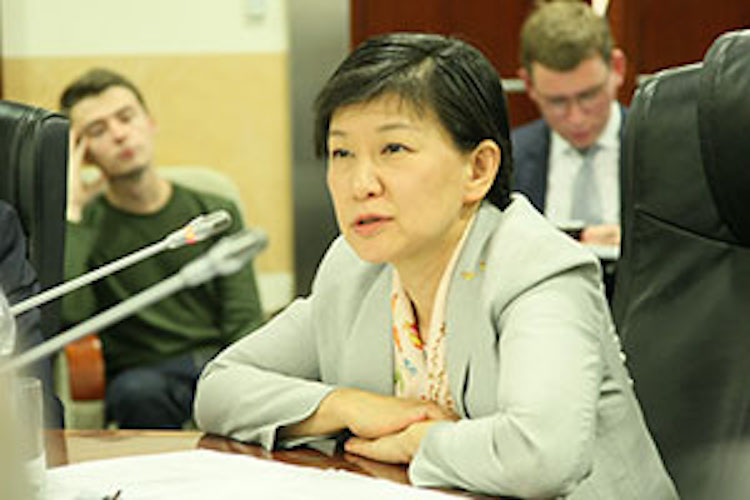
The author is High Representative for Disarmament Affairs United Nations (UNODA). The following are extensive excerpts from her address to Non-proliferation Studies students on the joint programme between Middlebury Institute of International Studies at Monterey (MIIS), Moscow State Institute of International Relations (MGIMO), and PIR Center, on 19 October 2017 in Moscow. – The Editor.
MOSCOW (IDN) – Historically speaking, the concepts of disarmament and non-proliferation date back centuries. The international efforts to strengthen the law of war are one of the important origins of disarmament work. Our work today is largely rooted in the terrible human consequences that resulted from two world wars, including the first and thankfully only uses of nuclear weapons in conflict at Hiroshima and Nagasaki. We work to ensure the people of this world never have to endure such devastation again.
Disarmament, Non-proliferation Vital for Conflict PreventionRead More »
India Ready to Work with Signatories of the Nuclear Ban Treaty in Multilateral Forums
By Amandeep Singh Gill
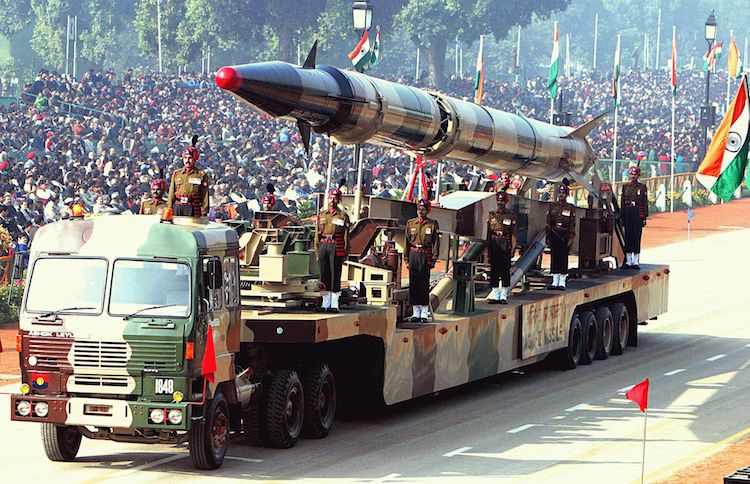
Ambassador Amandeep Singh Gill is Permanent Representative of India to the Conference on Disarmament in Geneva. Following are extensive excerpts from his remarks at the Thematic Debate on Nuclear Weapons in the First Committee, 72nd Session of the UN General Assembly on 12 October 2017. – The Editor.
UNITED NATIONS (IDN) –India remains committed to universal, non-discriminatory and verifiable nuclear disarmament and to multilateralism in pursuit of that goal. Our position has been firm and consistent over the years.
India Ready to Work with Signatories of the Nuclear Ban Treaty in Multilateral ForumsRead More »
Will U.S. Congress Legally Restrain a Nuclear World War III?
By Shanta Roy
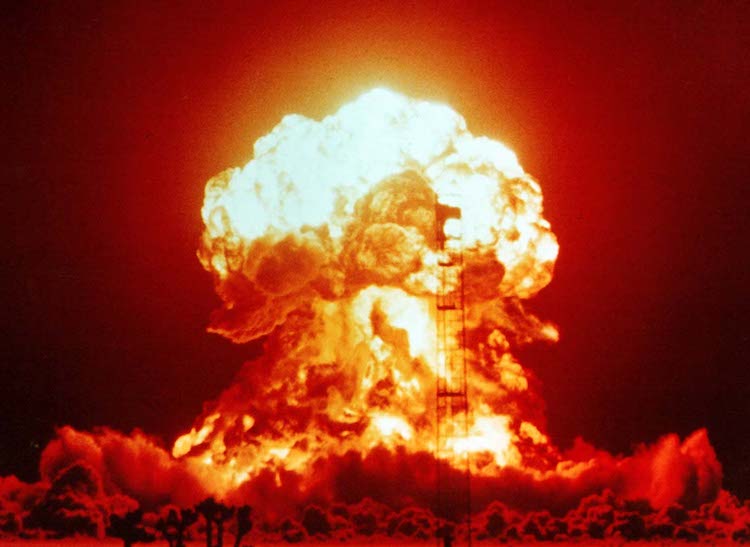
UNITED NATIONS (IDN) – U.S. President Donald Trump’s highly erratic behavior on nuclear weapons – and his public threats to “totally destroy” North Korea – have triggered a strong political backlash from anti-nuclear and anti-war activists.
“A central problem is that Donald Trump seems ignorant about what nuclear weapons really are, and the humanitarian catastrophe that would be unleashed if he fired even one at North Korea – or anywhere,” said Dr. Rebecca Johnson of the Acronym Institute for Disarmament Diplomacy, a founding co-Chair of the International Coalition to Abolish Nuclear Weapons (ICAN), the 2017 Nobel Peace Laureate. [P 23] ITALIAN | JAPANESE TEXT VERSON PDF | MALAY | NORWEGIAN | THAI
Will U.S. Congress Legally Restrain a Nuclear World War III?Read More »
Nuclear Nightmare Persists As UN Treaty Awaits Ratification
By Ramesh Jaura
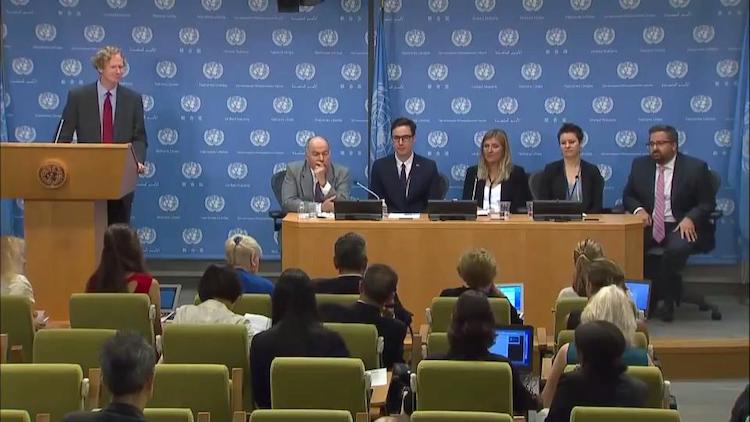
UNITED NATIONS (IDN) – “They will continue to be guided by their solemn conviction that a nuclear war cannot be won and must never be fought,” says the historic Joint Statement U.S. President Ronald Reagan and his counterpart from the then Soviet Union, Mikhail Gorbachev, signed on December 10, 1987 in Washington.
Thirty years on, Gorbachev – who was awarded the Nobel Peace Prize 1990 “for his leading role in the peace process which today characterizes important parts of the international community” – is “deeply concerned about the fact that military doctrines once again allow for the use of nuclear weapons”. [P 22] | JAPANESE Part 1, Part 2 |
Nuclear Nightmare Persists As UN Treaty Awaits RatificationRead More »
Nuclear Strike No Longer an All-Encompassing Taboo
Viewpoint by Jonathan Power*
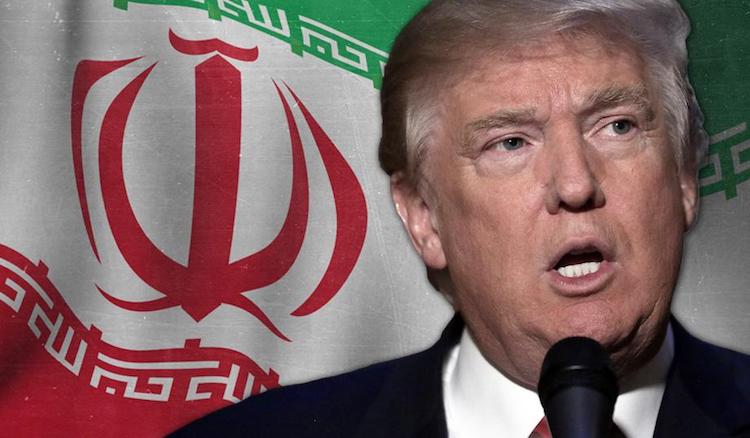
LUND, Sweden (IDN-INPS) – In the Cold War days, some of us used to say, “Better red than dead” – to rebuff those who believed in nuclear deterrence as a way of political life that gave them security. Now those of us who are frightened that Trump could start a nuclear war over Iran or North Korea should coin a new phrase. How about: “Better alive than going to the grave with Kim Jong-un”? Admittedly that doesn’t have the same snappy ring, but get my point?
At the UN recently, President Donald Trump (aka Fire and Fury) threatened to “totally” destroy North Korea if the U.S. was forced to defend itself.
Nuclear Strike No Longer an All-Encompassing TabooRead More »
Nobel Peace Prize for ICAN Significant for Nuclear Disarmament
By Sergio Duarte, President of Pugwash
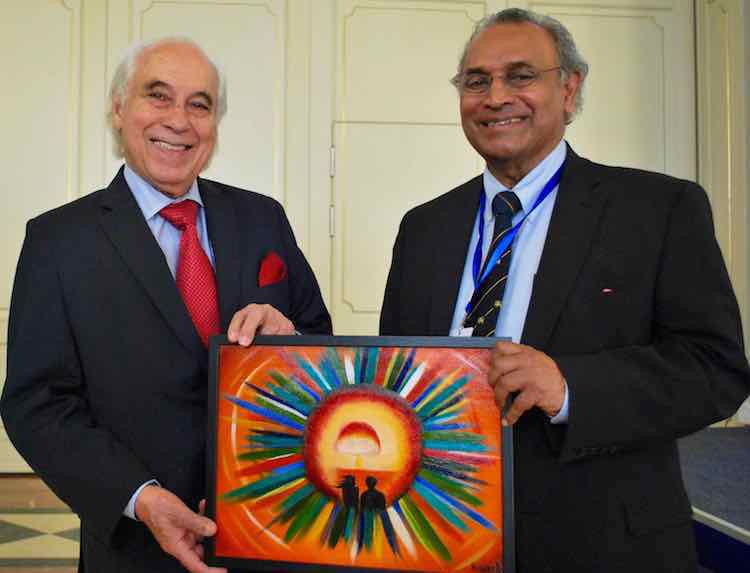
NEW YORK (IDN) – For the third time since the creation of the Nobel Peace Prize a civil society organization dedicated to nuclear disarmament has received this prestigious honor. The 2017 Prize has been awarded to the International Campaign to Abolish Nuclear Weapons (ICAN), a coalition of non-governmental organizations in 101 countries launched in 2007. Before ICAN, International Physicians for the Prevention of Nuclear War (IPPNW) and Pugwash Conferences on Science and World Affairs also were recipients of the Prize, respectively in 1985 and in 1995 for their actions in favour of peace and nuclear disarmament.
Nobel Peace Prize for ICAN Significant for Nuclear DisarmamentRead More »
The Complementarity Between Nuclear Ban Treaty and the NPT
By Sergio Duarte, Ambassador, former U.N. High Representative for Disarmament Affairs*
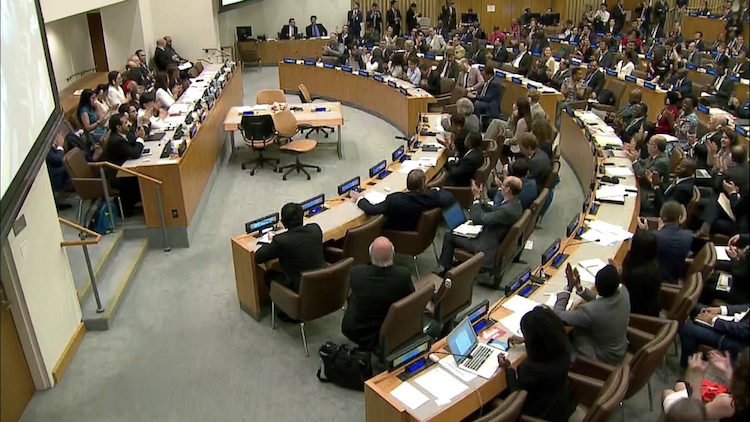
This article is based on a presentation by the author at a Pugwash Conference in Castiglioncello, Italy, on September 1, 2017. The full text is available at: http://www.uspid.org/Eventi/Archivio/2017_09Castiglioncello_main.html)
NEW YORK (IDN) – At least in one sense, the Treaty on the Prohibition of Nuclear Weapons adopted on July 7, 2017 can be considered an offspring of the 47-year old Nuclear Non-Proliferation Treaty (NPT). The negotiators of the former clearly intended to provide a path for the fulfilment of the obligation contained in Article VI of the latter. The two texts must not be seen as antagonistic toward each other, but rather as indispensable tools in the effort to eliminate the threat to humanity as a whole posed by the existence of nuclear weapons. This is a common objective of all multilateral instruments concluded by the international community since such weapons began to proliferate in 1945.
The Complementarity Between Nuclear Ban Treaty and the NPTRead More »
Trump Should Reaffirm That “A Nuclear War Must Never Be Fought”
By Daryl G. Kimball
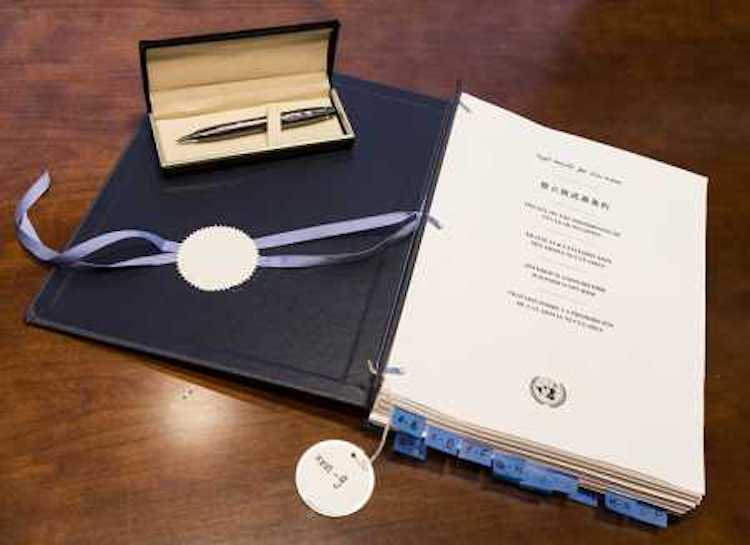
Daryl G. Kimball is Executive Director of the Arms Control Association. This article first appeared with the headline ‘Prohibit, Do Not Promote, Nuclear Weapons Use’.
WASHINGTON, D.C. (IDN-INPS) – At an emergency UN Security Council briefing on September 4 following North Korea’s sixth and largest nuclear test explosion, Nikki Haley, U.S. ambassador to the United Nations, lectured Pyongyang’s leaders that “being a nuclear power is not about using those terrible weapons to threaten others. Nuclear powers understand their responsibilities.”
Days later, in his inaugural address to the UN General Assembly on September 19, U.S. President Donald Trump called North Korea’s leader “rocket man” on “a suicide mission.” Trump warned, “We will have no choice but to totally destroy North Korea” if it threatens U.S. allies in the region. North Korea’s foreign minister replied by saying Trump’s insult makes “our rockets’ visit to the entire U.S. mainland inevitable all the more.”
Trump Should Reaffirm That “A Nuclear War Must Never Be Fought”Read More »
A Nuke-free World – Through Inclusive, Step-by-Step Approach
By Santo D. Banerjee

UNITED NATIONS (IDN) – Six days after the UN Treaty on the Prohibition of Nuclear Weapons – the first multilateral legally-binding instrument for nuclear disarmament to have been negotiated in 20 years – opened for signature on September 20, the General Assembly held a high-level meeting to commemorate the International Day for the Total Elimination of Nuclear Weapons.
Ministers and representatives of 46 Member States, delegations, the United Nations system and civil society took the floor on September 26 against a backdrop of rising tensions on the Korean Peninsula, stressing the urgent need for firm political will to advance towards the total elimination of all nuclear weapons by taking to an inclusive, step-by-step approach.
A Nuke-free World – Through Inclusive, Step-by-Step ApproachRead More »
EU Affirms Iran Deal Compliance, Rejects Renegotiation
By Kelsey Davenport
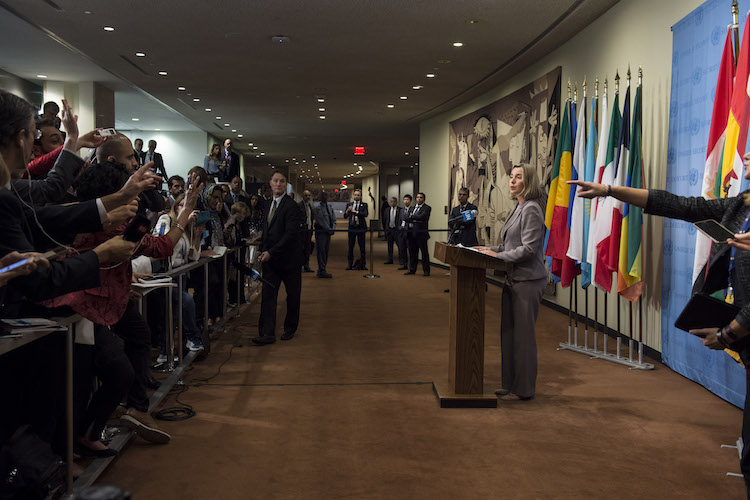
The writer is director for nonproliferation policy at the Arms Control Association. This article first appeared on September 21, 2017. – The Editor.
WASHINGTION, D.C. (IDN-INPS) – EU foreign policy chief Federica Mogherini stated unequivocally after a ministerial meeting between the P5+1 (China, France Germany, Russia, the United Kingdom and the United States) and Iran that all parties agreed that the nuclear deal is being fully implemented and there are no violations.
She said that the agreement, known as the Joint Comprehensive Plan of Action (JCPOA), is delivering on its purpose, and there is “no need to renegotiate parts of the agreement.” Mogherini said that issues outside the scope of the deal should be “tackled in different formats, in different fora.”
EU Affirms Iran Deal Compliance, Rejects RenegotiationRead More »
More Articles...
- 1. The Challenge of Nuclear Submarine Proliferation
- 2. Mayors for Peace Say the Danger of Nuclear War Is Real and Growing
- 3. Middle East Nuclear-Weapons-Free Zone, Long Elusive, is Making Progress, say Experts
- 4. Die Eliminierung von Interkontinentalraketen würde die Chancen eines globalen nuklearen Holocaust erheblich verringern
- 5. Elimination of ICBMs Would Greatly Reduce the Chances of a Global Nuclear Holocaust
Search
Newsletter
Report & Newsletter
Toward a World Without Nuclear Weapons 2022






